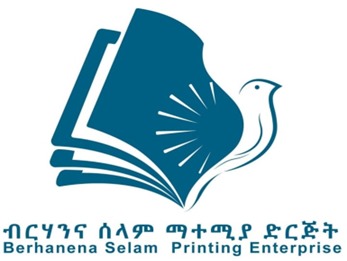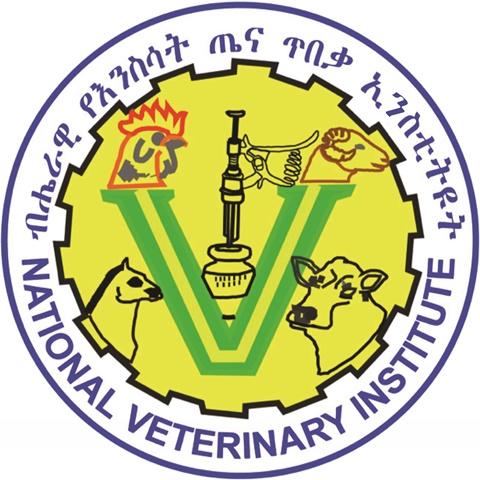Manufacturing
Overview of the sector
The manufacturing sector in Ethiopia has been experiencing double-digit growth over the past decade, although it currently accounts for only up to 5% of GDP[1]. Leveraging Ethiopia's abundant natural resources, cost-effective utilities, and available labor force, this sector holds significant potential for continued or even accelerated growth. Moreover, with a young population experiencing rapid increases in literacy and broader schooling rates, there is a growing demand for reading and learning materials. Recognizing the strategic importance of this sector, the Government of Ethiopia aims to ensure universal access to high-quality and affordable printed materials while also capitalizing on the digitization of content.
Within the printing industry, which encompasses both securities printing and commercial printing, growth is anticipated to persist, especially as other consumer industries reliant on printed products, such as the packaging industry, continue to expand. However, the industry currently relies heavily on imported raw materials, presenting an opportunity for the growth of local raw materials production.
Simultaneously, there is a rising demand for a variety of healthy entertainment services, driven by economic growth and urbanization. This necessitates the presence of service providers, including gaming and lottery, as well as effective regulation. As the government clarifies the roles of businesses and regulators, the entertainment industry is poised to transition into a new era of growth.
Ethiopia's paper and pulp industry face a substantial unmet demand, with minimal domestic production of pulp despite significant market potential. Importing approximately 170 million USD worth of paper and paperboard in 2016 highlights the opportunity for growth in local production. With an estimated annual demand exceeding 1.5 million tons per year, there is immense potential for expansion in the production of paper and pulp domestically [2].
[2] Diagnostic Trade Integration Study Update - Ethiopia (unctad.org)
Company description
Berhanena Selam Printing Enterprise (BSPE) has as a titan of the printing industry for nearly 100 years in Ethiopia. Established in 1914, their legacy is deeply intertwined with the nation’s modernization. BSPE offers a comprehensive range of printing services, encompassing both commercial needs and crucial government security printing. Notably, they hold the unique distinction of being the sole provider of official security prints in Ethiopia. This ensures the authenticity and integrity of essential government documents. Beyond security features, BSPE caters to a wide range of clients, producing books, newspapers, and vital business forms. Throughout history, BSPE has played a pivotal role in democratizing knowledge and information across Ethiopia.
Overview of business units
Berhanena Selam has three business units:
- Security Printing: Includes printing of checks, lottery, and exams
- Regular Printing: Includes printing of newsletters, books, and others
- Training: Provides training in areas of printing technology and graphic arts at a diploma level and for short-term certificate programs [1]
Company description
Ethiopian Pulp & Paper SC (EPPSC) was established in 1995 (E.C). EPPSC is primarily engaged in the production of paper and carton boxes. The company currently holds a 6.9% and 4.1% market share of the paper and carton box industries. By producing quality pulp and paper locally, Ethiopian Pulp and Paper S.C. is expected to reduce reliance on imported materials, strengthening the country’s self-sufficiency and supporting Ethiopian businesses and consumers.
Overview of business units
Ethiopian Pulp & Paper SC has two business units producing paper and carton boxes:
- Paper (includes production of writing and printing paper, wrapping paper, board paper, and carton box raw materials)
- Carton Boxes
- Supply packaging materials for manufacturing industries.
Company description
The spirits industry is set for growth following beer’s massive FDI-led growth. An estimated 25 million liters of commercially manufactured liquor products are sold in Ethiopia with a market value of $115 million. A variety of locally produced commercialized liquor is widely accessible and consumed mainly in cities and towns. Imported liquors are comparatively minuscule in volume with only 921,358 liters sold in 2017 but typically sold at a much higher margin. Ethiopia’s formal liquor market has to grow 3x to reach the levels of Kenyan formal liquor consumption.
National Alcohol and Liquor Factory (NALF) is by far Ethiopia’s largest liquor producer while also serving strategic export markets. The company has achieved over 58% market share. The company has two factories.
- Sebeta factory sits on ~ 18,000 sq.m of land
- Mekanisa factory sits on ~16,000 sq.m of land
- About 90% of the production line at both sites are less than four years old.
Overview of business units
- Liquor: NALF produces and distributes 14 different liquor products (Baro’s Dry Gin, Ouzo, Double Ouzo, Fernit, Bitter, Aperetif, Cognac, Brandy, Coffee, Lemon, Pineapple, Orange, Pernod, Supermint). The production capacity of Liquor is 22 million liters per annum
- Pure Alcohol: It is produced in the first step of the distillation process and has alcohol content of 96% (has a production capacity of 11 million per annum).
- Denatured Alcohol: This is a by-product of the full distillation process and has an alcohol content of 90%-95%
Company description
Education Materials Production and Distribution Enterprise (EMPDE) was established in 1967. It plays a crucial role in equipping students and educators across Ethiopia with the necessary tools for learning. EMPDE provides a range of services including printing, duplication services, chalk production, vehicle maintenance, wood and metal works, educational material production, and more. Looking ahead, EMPDE plans to invest in cutting-edge machinery and broaden its reach into new markets. This includes paper conversion, electronics, and plastic manufacturing.
Overview of business units
Currently the enterprise is engaged in the production of the following
- Printing services for a variety of educational materials, including learning and teaching materials, reference books, forms, report cards, notebooks, examinations, and confidential publications
- Production of furniture and educational aids/science kits/equipment
- Production of chalk and gypsum.
Company description
The National Veterinary Institute (NVI), established in 1964 in Bishoftu, Ethiopia, is a leading institution dedicated to producing and supplying quality veterinary vaccines, drugs, and biologicals at affordable prices to support the livestock sector. With a mission to meet national demand and enhance competitiveness in Africa by 2029, NVI also focuses on generating foreign currency through product exports. The institute is certified with ISO/QMS 9001:2015 for the development, manufacture, sales, and distribution of veterinary vaccines, and holds ISO/IEC 17025:2017 certification for specific laboratory tests
Company description
ShieldVax Enterprise is a state-owned vaccine manufacturing company in Ethiopia, established in July 2023 to enhance local vaccine production and reduce reliance on imports. With an investment exceeding $70 million, ShieldVax is constructing a facility within the Kilinto Industrial Park near Addis Ababa. The enterprise aims to commence fill-finish vaccine production by 2026 and produce vaccine drug substances by the end of 2027. This initiative aligns with the African Union’s goal of producing 60% of the continent’s vaccines by 2040, positioning ShieldVax as a pivotal player in regional health security.
Quick Links
Contact
+251(0)111 70 45 40
info@eih.et
General Winget St, Hilcoe Building 5th floor, Addis Ababa ,Ethiopia
Copyright © 2025 All Right Reserved

 Berhanena Selam Printing Enterprise (BSPE)
Berhanena Selam Printing Enterprise (BSPE) Ethiopian Pulp and Paper S.C (EPPSC)
Ethiopian Pulp and Paper S.C (EPPSC) National Alcohol and Liquor Factory
National Alcohol and Liquor Factory Educational Materials Production and Distribution Enterprise
Educational Materials Production and Distribution Enterprise National Veterinary Institute
National Veterinary Institute ShieldVax
ShieldVax